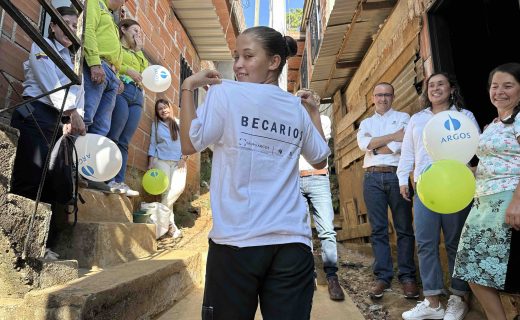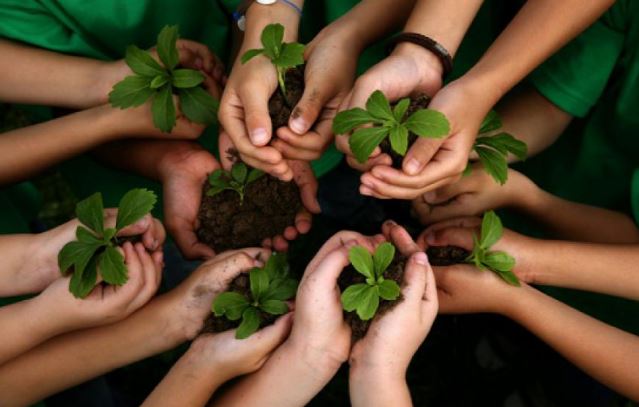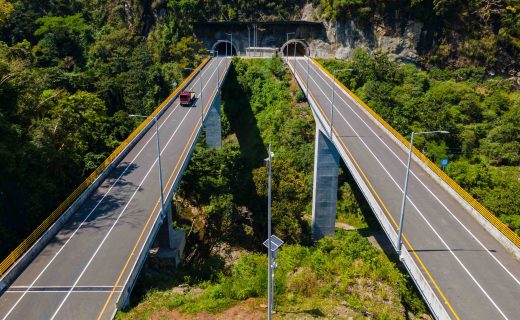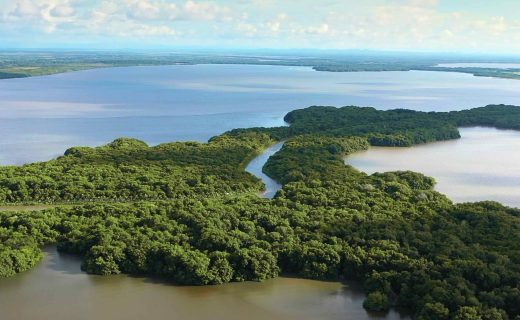

Sustainability • Sustainability
The Fundación Grupo Argos begins the second phase of the Huella Viva project in Río Claro
11 September 2019Sustainability | SEPTEMBER 11th, 2019
The Fundación Grupo Argos begins the second phase of the Huella Viva project in Río Claro with which it will plant 210,000 trees in one year
In this project for the conservation of forests and water, eight entities join efforts, among which are Cementos Argos and Celsia, which with the ReverdeC program, has planted more than 3 million trees between 2016 and 2019.
On September 7th, the first socialization activity was carried out with the communities of the Río Claro basin to meet their expectations and vision of the territory, considering that they are the main allies of this initiative.
Regarding the National Biodiversity Day, the Grupo Argos Foundation stands out as one of the companies that invest the most in the country in environmental conservation programs and in the protection of species such as the Andean bear, with an accumulation of more than $ 13 thousand million of its own and more than $ 22 thousand million joining efforts with other entities between 2016 and 2019.
Fundación Grupo Argos initiated the second phase of the Huella Viva program in Rio Claro, Antioquia, an initiative that seeks to protect water basins and biodiversity, and includes the planting of 210,000 trees in this area of the department, the signing of 16 agreements conservation focused on the human-feline conflict and 40 agreements for the preservation, the formation of Committees of Environmental Promoters, among other relevant work fronts to fulfill the conservation task of the basin.
|
|
|
On September 7th, the first socialization activity of the project was carried out with the communities that live in areas adjacent to the territory of the Claro River. In this space, the community learned about the program and pledged to join efforts to contribute to the protection of the basin and tributaries through conservation and sustainable production strategies that will also allow them to improve their quality of life.
“With the new proposal of the Fundación Grupo Argos we dream of also increasing the environmental awareness that is the most important thing to achieve a true conservation of the natural capital that we have in our paths and also to organize ourselves as a community to better manage our resources and carry out projects friendly to the environment, ”said Alejandro Cárdenas, workshop participant.
With this and other initiatives around the country such as Conservamos la Vida, which protects the habitat of the Andean bear, the restoration of mangroves in the area of the lower Canal del Dique in Bolívar, our environmental education program that reaches nine departments and other projects of conservation of our natural heritage that are being carried out in Tolima and in the Southwest of Antioquia, the Fundación Grupo Argos, in alliance with other entities, seeks to contribute so that Colombia continues to be one of the 17 mega-diverse countries that host 70% of the world's biodiversity in only 10% of the territory.
Other relevant conservation initiatives of the Business Group Cementos Argos has 17 plants and terminals in more than six states in the United States that received the certification of the Wildlife Council, which recognizes the best corporate standards for species conservation. Also, since 2017 at the Martinsburg plant, the behavior and migration of the black vulture is being studied and more than 120 birds of this species have been identified, which is under the scheme of protection of migratory birds. Celsia, with the ReverdeC program, has planted since 2016 more than 3.3 million trees of seven threatened species. Likewise, with this program 32 of 42 municipalities in Valle, and 22 river basins in the region have been intervened. On the other hand, Odinsa, the concession company of Grupo Argos, does a strong job in identifying strategic ecosystems for projects, evaluating opportunities to continue conserving biodiversity. For example, for El Dorado International Airport, the Plan for the Control of Fauna and Avian Danger was implemented to guarantee air safety and prevent effects on the migratory routes of the birds that visit the airport. In addition, 900 trees of four native species of Tropical Dry Forest were planted. |
Mas noticias
-
 News
News -
 News
NewsGrupo Argos and Cementos Argos Once Again Among the World's Most Sustainable Companies According to the Dow Jones Sustainability Index
23 December 2024 Read more -
 News
NewsGrupo Argos and the Autonomous Corporation of Atlántico (CRA) launched the book "The Memories of the Mangrove" as part of the Somos Sostenibilidad event.
12 December 2024Grupo Argos and the Autonomous Corporation of Atlántico (CRA) launched the book "The Memories of the Mangrove" as part of the Somos Sostenibilidad event.
Read more -
 Grupo Argos Foundation
Grupo Argos FoundationGrupo Argos Foundation, Terraformation, the Government of Antioquia, and the Province of Cartama sign an agreement for over COP 5 billion to promote sustainable livestock farming
6 November 2024Grupo Argos Foundation, Terraformation, the Government of Antioquia, and the Province of Cartama sign an agreement for over COP 5 billion to promote sustainable livestock farming
Read more -
 Grupo Argos Foundation
Grupo Argos FoundationGrupo Empresarial Argos will reach the record figure of one million mangrove seedlings planted in the Colombian Caribbean in the first quarter of 2025
30 October 2024Grupo Empresarial Argos will reach the record figure of one million mangrove seedlings planted in the Colombian Caribbean in the first quarter of 2025
Read more

